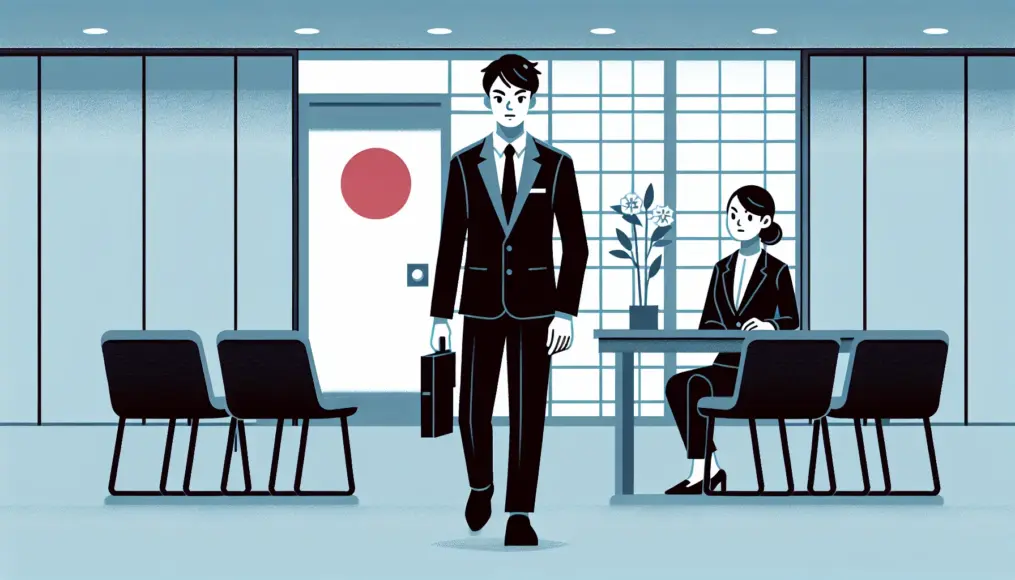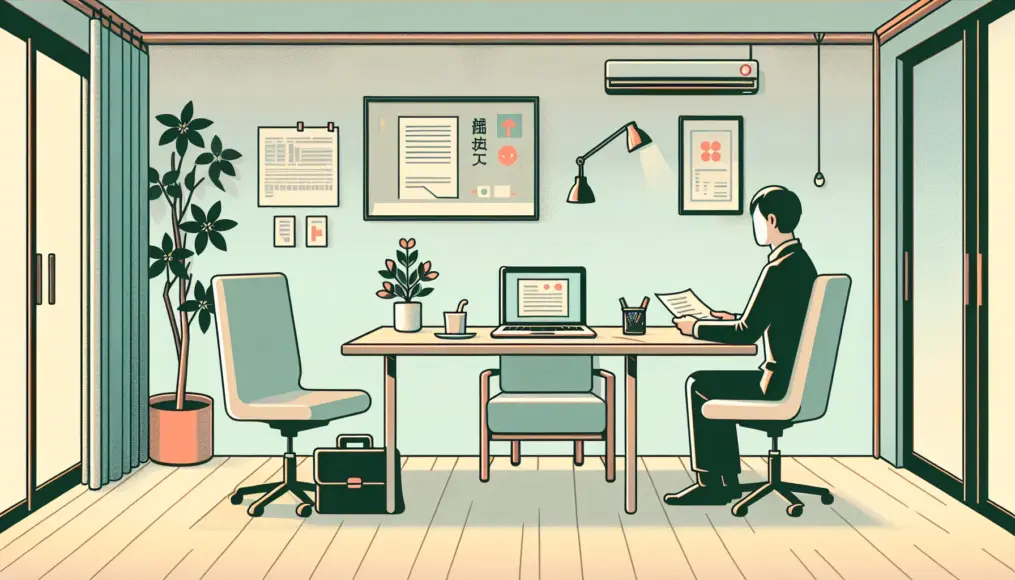It’s common to be asked about your hobbies during a job interview, but have you ever thought about why employers ask this question?
Companies want to gain insight into your personality and values through your interests. Questions about hobbies aren’t just small talk; they serve as a way for interviewers to assess your communication skills and ability to work in a team.
By keeping a few key points in mind, you can confidently discuss your hobbies and leave a positive impression.
- The Intent Behind Asking About Hobbies from an Employer’s Perspective
- How to Effectively Communicate Your Hobbies with Examples
- Choosing Hobbies That Are Suitable for Interviews
Understanding the Purpose Behind Hobby Questions in Interviews
It’s common to be asked about your hobbies during a job interview. But there’s often more to this question than meets the eye. Employers use it as a way to gain insights into your personality and values through your interests.
Why Employers Ask About Hobbies
There are several reasons why companies might inquire about your hobbies during an interview. First, they want to understand what activities you enjoy, which can reveal your interests and core values. Additionally, your hobbies can serve as a gauge for your personality and communication skills. For instance, in workplaces that value teamwork and collaboration, employers might look to your hobbies to assess these qualities.
- Hobbies reveal interests and values
- Communication skills are assessed
- Teamwork and collaboration are evaluated
How Your Hobbies Reflect Your Personality
Your hobbies are a significant reflection of who you are. For example, someone who enjoys sports may come across as healthy and active. On the other hand, individuals who appreciate art or music might demonstrate a more creative side. In this way, your interests can convey your unique personality traits to the interviewer. Moreover, understanding the importance of self-introduction in interviews can help you effectively showcase yourself. For tips, you might want to check out a guide on effective self-introductions for college students!.
- Sports enthusiasts give off a healthy vibe
- Art and music lovers are often seen as creative
- Hobbies communicate personality and traits
Key Points for Effectively Communicating Your Hobbies
When asked about your hobbies in an interview, how you respond can make a significant difference. Effectively conveying your interests can leave a positive impression on the interviewer. In this article, we’ll explore how to explain your hobbies using specific examples and share tips on how to engage your interviewer with your storytelling.
Using Specific Examples in Your Explanation
When discussing your hobbies, incorporating specific examples can be quite impactful. Instead of simply saying, “I enjoy reading,” try mentioning the title or a brief summary of a book you’ve recently read. This approach leaves a more lasting impression. Additionally, highlighting particular works or activities within your hobbies can showcase your passion and enthusiasm. By using concrete examples, you help the interviewer grasp how important your hobbies are to you.
- Include specific examples
- Share recent activities or works
- Convey your passion for your hobbies
Tips for Engaging Your Interviewer
To resonate with your interviewer, it’s crucial to pay attention to your tone of voice and speaking pace. Speaking in an upbeat tone can convey your enthusiasm and interest. Also, maintaining an appropriate speaking speed while being mindful of the interviewer’s reactions is essential. When you speak with confidence, your passion for your hobbies is more likely to shine through. For more preparation tips, check out Common Questions for Second-Time Job Seekers and How to Tackle Them! Key Points for Success.
- Speak with an upbeat tone
- Adjust your speaking speed
- Communicate with confidence
Choosing the Right Hobbies and What to Avoid
When asked about your hobbies in an interview, it’s crucial to consider how they will be perceived. Selecting appropriate hobbies can leave a positive impression on the interviewer. Here, we’ll discuss examples of hobbies to avoid and how to choose the right ones for an interview.
Hobbies to Avoid
Be cautious about the hobbies you mention during an interview. For instance, it’s best to steer clear of extremely personal hobbies or those that are too obscure. Additionally, hobbies involving violence or those that consume excessive amounts of time are generally frowned upon. These interests may give the interviewer a negative impression, so it’s advisable to avoid them.
- Avoid overly personal hobbies
- Steer clear of obscure interests
- No violent or time-consuming hobbies
How to Choose Suitable Hobbies for Interviews
When selecting hobbies that are suitable for an interview, aim for those that showcase your personality and skills. Activities like sports, music, or volunteering can effectively demonstrate teamwork and responsibility. If you can explain the skills you’ve developed through your hobbies in a concrete way, that will make you even more appealing. Consider how your hobbies can translate into benefits for your job as well. For more insights on interview preparation, check out How to Tackle Common Job Interview Questions! Your First Step to Success.
- Choose hobbies that highlight your personality and skills
- Sports, music, and volunteering are great examples
- Think about how your hobbies can be applied in the workplace
Strengthening Your Personal Brand Through Hobbies
When you’re asked about your hobbies in an interview, leveraging them effectively can be a powerful way to showcase your personal brand. Hobbies provide a fantastic opportunity to highlight your personality and skills. In this article, we’ll explore how to connect your hobbies to your professional life and share examples of how they can enhance teamwork.
Connecting Hobbies to Your Work
It’s crucial to think about how the experiences and skills you’ve gained from your hobbies can be beneficial in a work setting. For instance, if you play sports, you can demonstrate teamwork and a strong work ethic toward achieving goals. Similarly, if you’re involved in music, you can showcase your focus and creativity. By articulating these insights clearly during an interview, you can leave a lasting impression on your interviewer.
- Show teamwork through sports
- Highlight focus and creativity through musical activities
- Provide specific examples of your hobby experiences
Examples of Hobbies Enhancing Teamwork
Hobbies can also serve as excellent platforms for fostering teamwork. For example, team sports like soccer or basketball require collaboration and mutual support. Participating in volunteer activities or community events can also enhance your communication skills. Sharing these experiences during an interview allows you to present yourself as a team player. If you want to further refine your overall interview preparation, consider checking out Tips to Stand Out in Customer Service Interviews: Common Questions and Success Strategies.
- Develop collaboration skills through team sports
- Improve communication skills through volunteer work
- Position yourself as a team player
Summary
When you’re asked about your hobbies in an interview, it’s a golden opportunity to showcase your personality and values. Choosing the right hobbies and explaining them with specific examples can leave a positive impression on your interviewer. Think about how the experiences you’ve gained through your hobbies can be applied to the job, and strengthen your self-presentation.
- Understand the context behind hobby-related questions
- Use specific examples to effectively convey your hobbies
- Consider how to choose hobbies that are suitable for interviews
Take some time to reflect on how your hobbies can be leveraged in an interview setting. If you have any thoughts or questions after reading this article, feel free to share them in the comments!



Comment